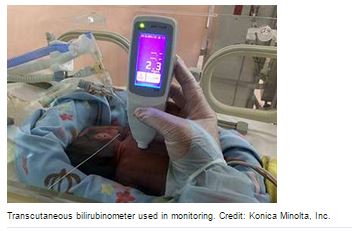Dermal Monitoring Can Prevent Cerebral Palsy in Preterm Infants
[Source: Medical X-Press]

Japan has the world’s highest survival rate for preterm infants, thanks to advanced medical treatment and the availability of Neonatal Intensive Care Units (NICU). Despite this, cases of cerebral palsy and hearing loss caused by neonatal jaundice continue to occur, with cases reported for at least 2 in every 1000 infants born before the 30th week of gestation. It has also been established that cases of jaundice can worsen even two weeks after birth, meaning that there is a need for continuous long-term monitoring of infants in the NICU. However, jaundice in preterm infants is difficult to detect through physical observation, and monitoring through a daily blood test is not a realistic option.
Read the Rest of this Article on Medical X-Press
PediaStaff is Hiring!
All JobsPediaStaff hires pediatric and school-based professionals nationwide for contract assignments of 2 to 12 months. We also help clinics, hospitals, schools, and home health agencies to find and hire these professionals directly. We work with Speech-Language Pathologists, Occupational and Physical Therapists, School Psychologists, and others in pediatric therapy and education.
